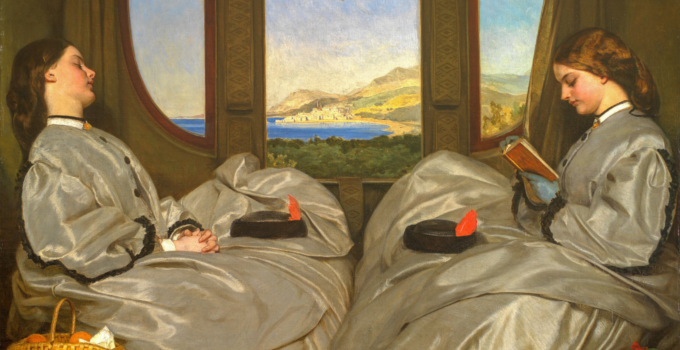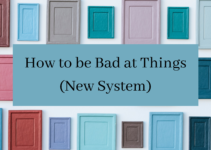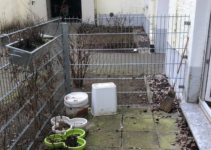More books! In this post, I talked about the books that I read in the first half of 2020, so now I’m going to cover what I read in Q3 (July – September). I had a lot of time to read in those months – the EU was open to travel again, so Zack and I went camping and then spent a lot of time taking the train to Heidelberg, Vienna, and Paris.
Quick note: I’m not good at balanced reviews and I’m not good at personalized recommendations. So I’m covering what I thought about each book and whether I liked it or not. Cool? Cool.
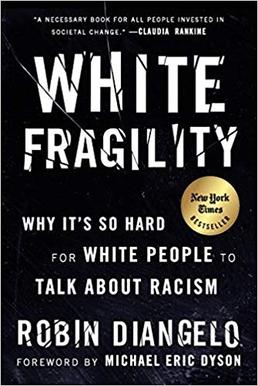
White Fragility (by Robin DiAngelo)
I’ll admit it, I jumped on the bandwagon of antiracism self-education this summer. I’m working to ensure my reading has more diverse voices (my favorite genres are dominated by white male authors – hi, Dickens!). This book is quick but heavy-hitting. One point that I thought especially poignant is that we don’t talk about the downsides the majority experience from living in a segregated society. The discussion usually revolves around the inequitable distribution of resources, but we never talk about how the segregated groups miss out on the richness of experience that comes from multicultural society!
It has been interesting to read some of the backlash against this book. The author is a white woman, and there are some who believe that she needs to do more to center POC voices with her platform.
Did I Like It?
Like is a weird word to associate with being confronted with your own blind acceptance of your racist society. But it wasn’t a negative experience – more thought-provoking. Definitely a worthwhile read.
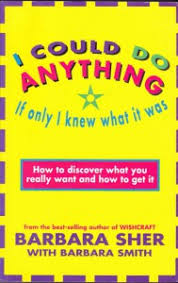
I Could Do Anything If I Only Knew What It Was (by Barbara Sher)
I’ve already written in pretty intense detail about this book, so I’ll keep this short. This one is a build-your-own adventure book for dealing with transitions in life. It encourages the reader to think broadly about what their life could be. And it has some really fun exercises that I’ll be revisiting periodically through my life.
Did I Like It?
Yes. I want to buy this for every high school and college grad, anyone who leaves or loses a job, anyone who feels like they aren’t content with their life. HUGE fan.
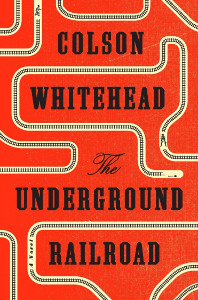
The Underground Railroad (by Colson Whitehead)
This one was great and, I’m finding, hard to describe. It follows a couple characters in their journey of escaping slavery. And I think it’s really smart in the way it takes the characters through a couple of tough non-chattel-slavery living situations. I was left with a broader understanding that just escaping enslavers wasn’t enough to truly free people.
If I’m being incomprehensible, it’s because I’m trying to describe it without giving it away.
Did I Like It?
Yes. I actually just looked it up on Wikipedia to try and see if I could be clearer in describing it (I can’t) and found out it won the Pulitzer for fiction in 2017. So it’s a verifiably Good Book. Excellent fiction, if you need some of that this winter.
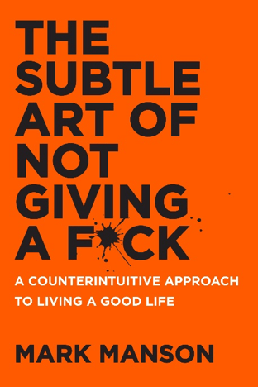
The Subtle Art of Not Giving a F*ck (by Mark Manson)
I actually got this book at a white elephant at work, then donated it without reading it. It was kind of funny to read it after listening to Radical Acceptance earlier in the year, because it takes some of the same Buddhist principles and interprets it in a wildly different manner. So different, in fact, that I only noticed that he was espousing Buddhist principles because I had read the other book.
I don’t regret not owning this one anymore, but reading through my notes (I take notes from a lot of books), I’m glad I read it and kept my notes. He has an interesting perspective on defining personal values, which I found refreshing.
Did I Like It?
Yup. If you’re feeling like you’re failing in life, despite knowing that you factually are not failing in life, this book could give you the swift kick in the pants that you need.
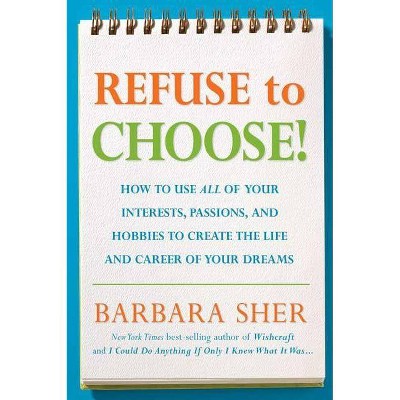
Refuse to Choose (by Barbara Sher)
Again, I’ve written about this one already, so a quick overview will suffice.
Barbara Sher invented the term “Scanner Personality” in her other book, I Could Do Anything, If Only I Knew What It Was, to describe people whose interests are varied and who feel constricted when they have to focus on any one thing. The term resonated with so many people that she wrote this book to go in-depth about their personality and how to live as one.
Did I Like It?
It significantly shifted my self-perception for the better. So, yes. If you beat yourself up about not finishing your projects or get dejected because you have a million life dreams instead of just one, check this one out.
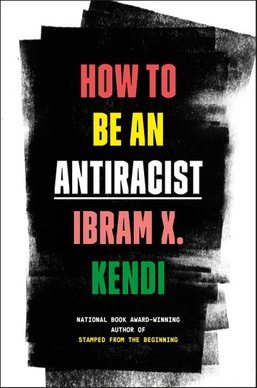
How to be an Antiracist (by Ibram X. Kendi)
This one actually had a lot of the same key points and themes as White Fragility. Having read the other one first, I can’t comment on how it would be to read this one first. But White Fragility was shorter and simpler, so I think it prepped me for How to be an Antiracist.
How to be an Antiracist uses the narrative of the author’s life to examine three different positions on racist policies. I think I want to own a physical copy of this one to revisit.
Did I Like It?
Yes. I especially liked the historical viewpoint he brought and the way he presented how antiracism has to shift as time goes on. (And if you haven’t noticed, wanting to own a physical copy of a book is a Big Deal)
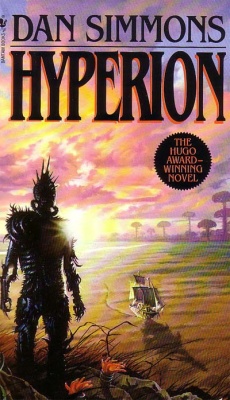
Hyperion (by Dan Simmons)
Ooooh you guys. When I reserved Foundation at the library, I also reserved this one. I reeeaaallly liked this one. Ok, so. Seven people are selected to go on a pilgrimage to a holy site for a futuristic religion called The Church of the Shrike. The Shrike is a nonhuman killer being that allegedly grants the final wish of whoever approaches it. The novel is made up of the story of the seven people making their way to the site, interwoven with each of them telling the story of why they’re there.
Did I Like It?
I will admit, it had a bit of a slow start. But once I got 50-75 pages into it, I couldn’t put it down. If you like sci fi or fantasy, you’ll really like this one.
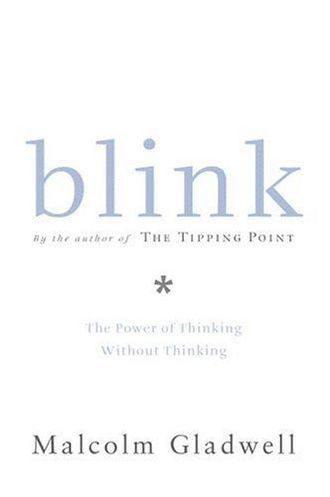
Blink (by Malcolm Gladwell)
Oh, Malcolm Gladwell, you’re always good for a fun read. This one is about split-second decision-making and how it’s often more reliable than when we take the time to collect a ton of information.
Did I Like It?
Yup! Did I remember most of it when I was done? Nope. Did I just read the Wikipedia summary and realize that I remember more than I thought, I just didn’t associate it with this book because I read it so fast? Yes.
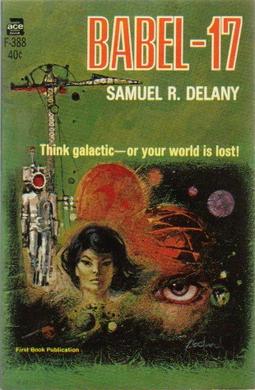
Babel-17 (by Samuel R. Delany)
This one was hilarious to read so close on the heels of Hyperion. It was set up to be a fun sci fi adventure, where a language is being used as a weapon and a linguist is brought into the military operation to decode and defeat the enemy. It has some really cool world elements, like ships piloted by thruples and hiring ghosts to be navigators.
What you’re left with is a protagonist that is beautiful, a genius, skilled in ways you couldn’t imagine (and therefore annoyingly unrealistic) in a plot entirely driven by the author’s desire to use it as a metaphor for a linguistic theory. It was…clunky.
Did I Like It?
His narrative style is engaging, and I read it quickly and happily. But he prioritized fleshing out the linguistic theory over wrapping up the plot in a coherent way (worse than Dickens, I swear), so I was left feeling lukewarm at best.
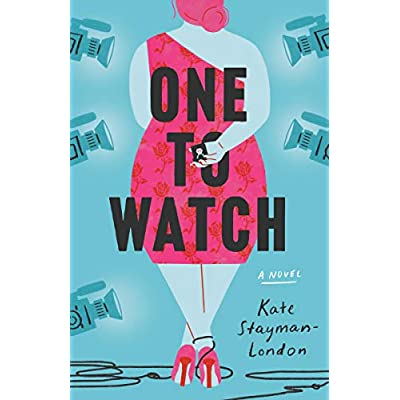
One to Watch (by Kate Stayman-London)
This one was adorable! It’s a great beach read about a plus-sized woman who agrees to be the novel’s version of The Bachelorette. An Instagrammer I follow recommended it, and I’m super glad I read it.
Did I Like It?
Yup! Gobbled it up like the good rom com that it is. Cried a bit like I do at every rom com.
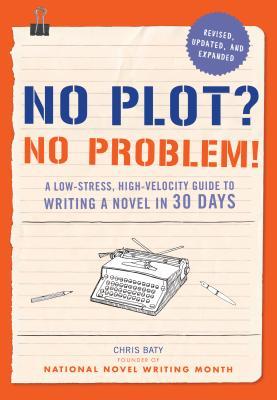
No Plot? No Problem! (by Chris Baty)
I read this one in prep for NaNoWriMo, and I’ll probably do a separate review of it after November is over. It is written by the guy who came up with the crazy NaNoWriMo idea and is a holistic guide to surviving it. It has prep tips, week-by-week encouragement and writers-block-busting exercises, and suggestions for how to celebrate.
Did I Like It?
It left me feeling more prepared for NaNoWriMo for sure. But I won’t know if it works for a couple more weeks – stay tuned!
I didn’t realize how much I read in those three months! Any ideas on what I should read next? Let me know in a comment please and thank you!
